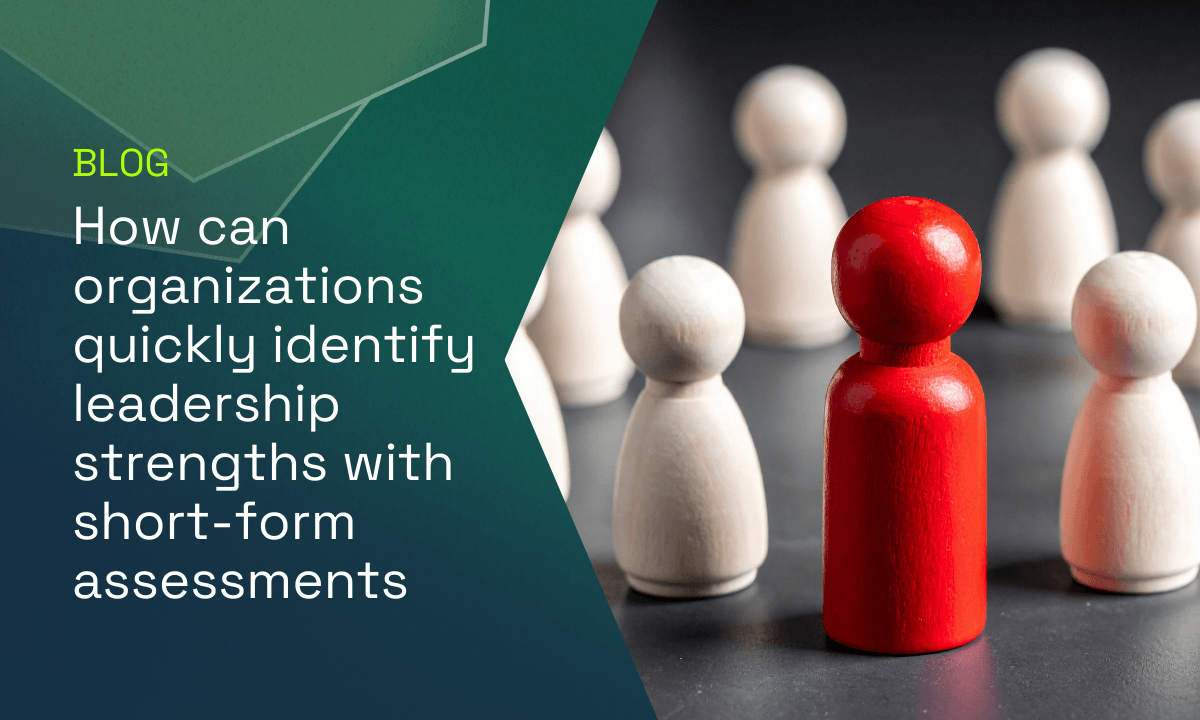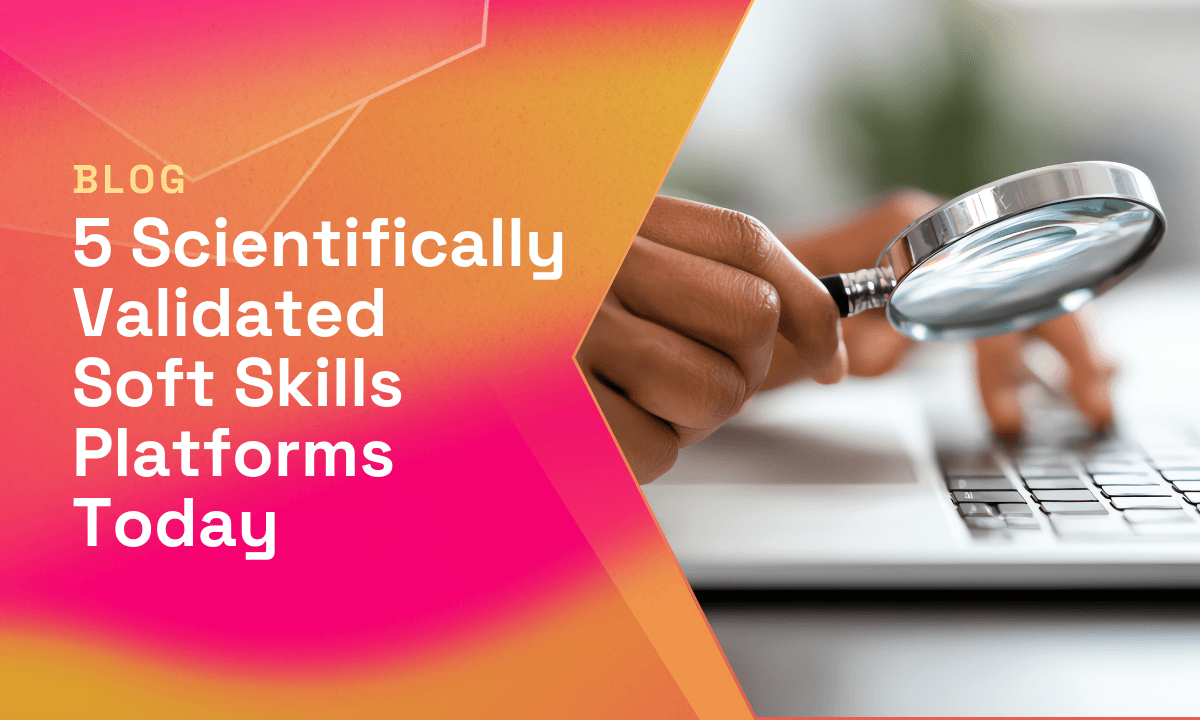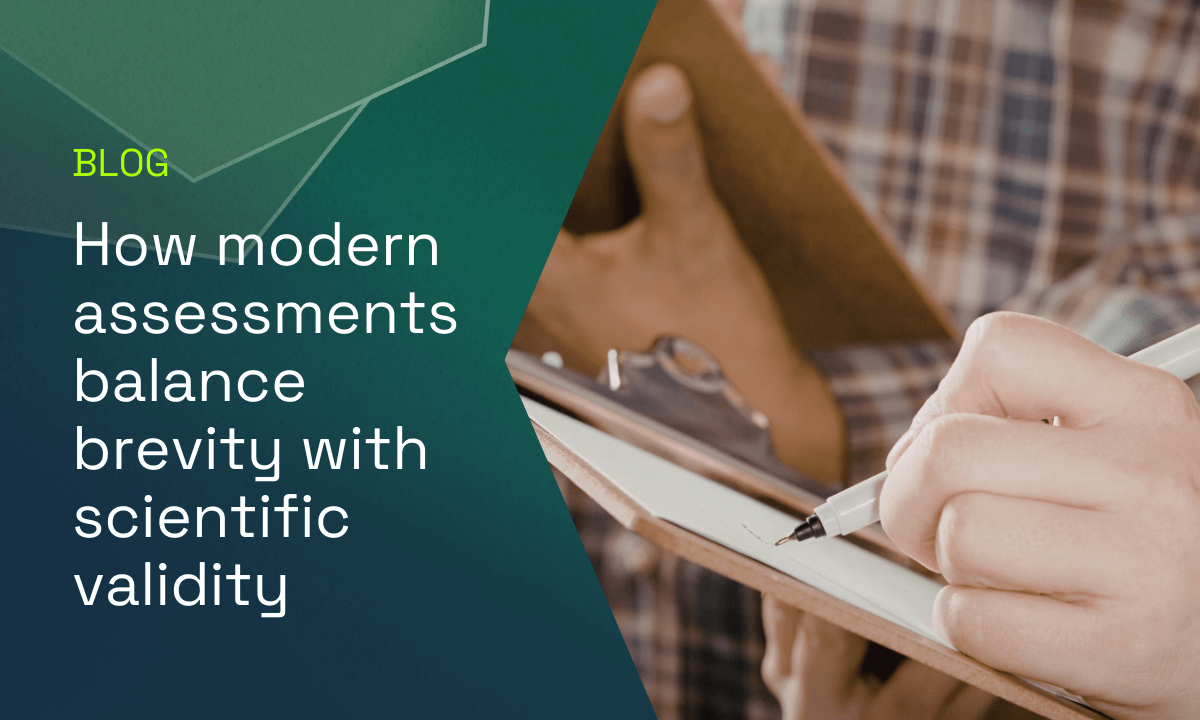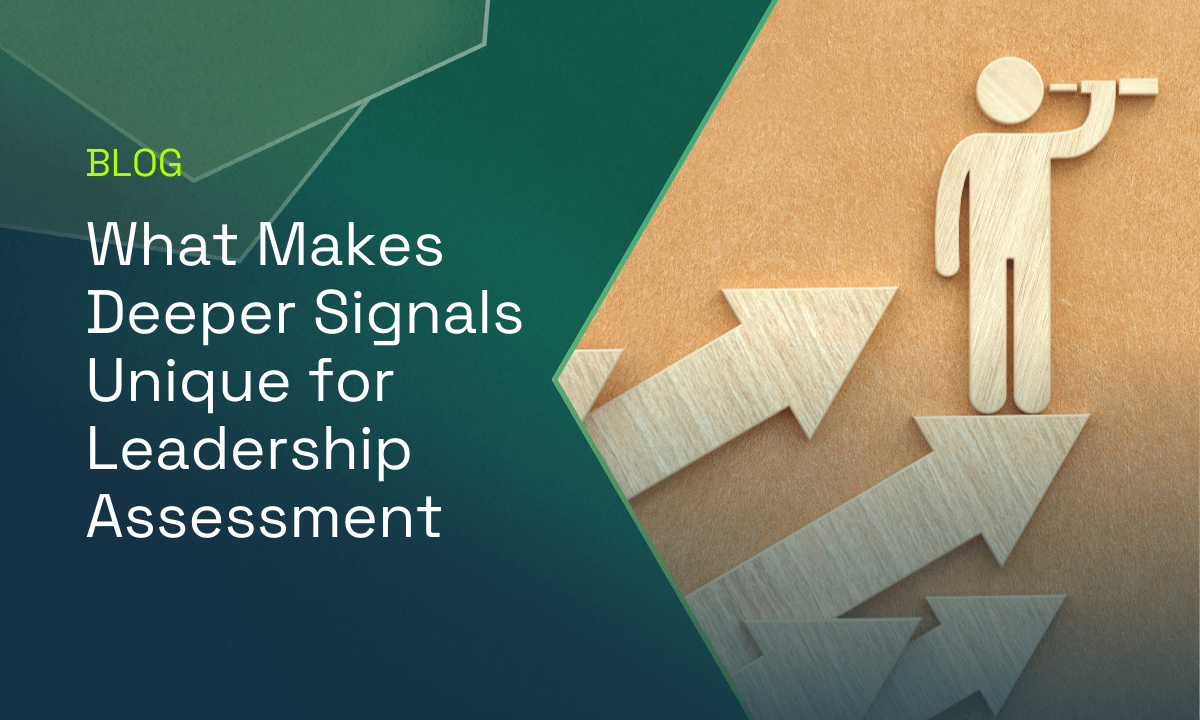Can AI understand people?
Based on an interview with Dr. Luke Treglown, Director of AI & Assessment R&D at Deeper Signals, former Director of AI & Head of Innovation Labs at Thomas International, and PhD in the Psychology of Employee Disenchantment.
Artificial intelligence is redefining how organizations assess talent, from screening and selection to leadership development. Yet as Dr. Luke Treglown, Head of Assessment R&D at Deeper Signals, explains, AI alone can’t understand people. Psychology provides the structure and meaning behind the data.
This new era of talent assessment isn’t about replacing experts with algorithms. It’s about combining AI efficiency with psychological insight to make assessments faster, fairer, and more human.
How AI is transforming talent assessment in modern organizations
Across industries, organizations are integrating AI into talent assessment to make insights faster, smarter, and more scalable.
“AI is being used in talent assessment for one of two reasons,” says Dr. Treglown. “One is ultimately trying to make insights faster and smarter to take admin off our plate and help people see more clearly and make decisions easier.”
From CV screening, automated interview scheduling, to generating talent insights, AI eliminates administrative friction so HR teams can focus on human judgment and coaching.
The second reason is deeper: using AI to combine different forms of data (psychometrics, performance, CVs, team dynamics) into something meaningful.
“AI is being used to interpret more complexity, combining psychometric data with CV data and other signals to create meaning,” Luke explains.
AI in assessment isn’t just about speed. It’s about turning talent data into context-rich insight to help organizations answer not only who to hire, but why they’ll thrive in a specific team or culture.
Why psychology remains essential in an AI-driven assessment world
AI is exceptional at pattern recognition, but it struggles with context.
“AI is really, really good at synthesizing information,” says Luke. “The gap is, it needs expert guidance from psychologists to understand what the information is and why it’s useful.”
Without a psychological structure, algorithms risk reducing people to static categories or oversimplified personality scores.
“It’s a little bit like a Buzzfeed quiz sometimes,” he adds. “Great to know which character from Friends you are, but it doesn’t go into massive depth as to why.”
Science fills that gap. Psychometrics provides AI systems with validated frameworks of personality and motivation that make data meaningful, the why behind the what. When guided by validated theory, data stops being just numbers and becomes a tool for development, fairness, and self-awareness.
How psychometrics helps AI understand people
If artificial intelligence is transforming how we assess talent, psychometrics is what keeps that transformation human. It gives AI the structure and theory it needs to interpret complexity.
“More and more, AI is being used as a thinking partner,” says Dr. Luke Treglown. “We talk to it, test ideas with it, expect it to respond like a colleague or a coach.”
That shift, treating AI as a conversational collaborator, highlights why psychology matters. Without understanding how people differ in the way they think, decide, and communicate, AI can only repeat patterns. Psychometrics gives those patterns context.
“Psychometrics gives a clear framework for understanding how different people think, communicate, make decisions,” Luke explains. “Just as some personalities click and others clash, we can design AI to adapt its tone or style to the individual.”
While most AI systems today don’t yet adapt dynamically to personality data, these ideas point to what’s possible. In the future, an AI tool like Sola could use psychometric principles to adjust how it interacts, for instance, being more direct with highly Driven users, more reflective with Curious ones, or more collaborative with Considerate personalities.
These are concepts, not current capabilities. But they illustrate the direction the field could take - AI systems informed by psychological theory, capable of responding to people in ways that feel more natural, fair, and personal.
“Psychometrics helps us define the traits, drivers, and values that make [an AI] the most effective collaborator we can have,” Luke adds.
By grounding AI in human science, psychometrics ensures that technology doesn’t just process people, it helps them understand themselves better.
Bringing human science and machine intelligence together
AI is transforming talent assessment by automating routine tasks and accelerating insights. However, psychology remains the human compass that ensures those insights are fair, contextual, and meaningful.
“The future will come from bringing these two intelligences together, computational and human,” says Dr. Treglown. “None replaces the other.”
This is the philosophy behind Deeper Signals: integrating AI and psychometrics to build tools that are scientific, accessible, and actionable, empowering organizations to make better decisions, and individuals to understand themselves more deeply.





























